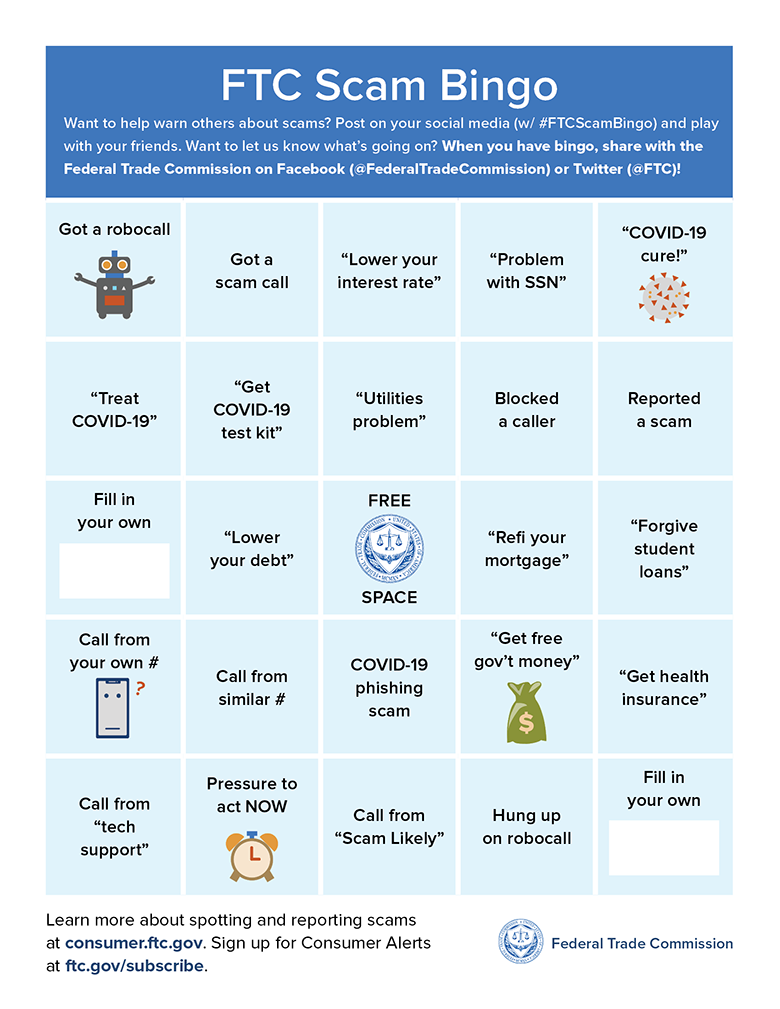During the Coronavirus outbreak, many people are working from home — and maybe even, for the first time in a long time, answering calls from unfamiliar phone numbers. It might be your colleague’s cell phone…or it might be a robocaller or scammer. So here’s a way you can spot some of those scam calls you might be getting. And it’s a way to spread the word to help protect others in your community.
Use the #FTCScamBingo card to check off the scammers you spotted, along with the steps you took to stop them. Scams related to the Coronavirus are growing. Some scammers are promising that you can refinance your mortgage or get student loan debt forgiveness – for a fee, of course. You might spot phishing scams, where scammers try to get your Social Security number (SSN) or financial info – maybe to guarantee you access to a COVID-19 vaccine (remember: there’s still no vaccine, so definitely no access). They might say they’re from Medicare (they’re not) with a health kit, from the CDC (again, not) with a vaccine kit, or the Social Security Administration (nope), telling you there’s a problem with your SSN (there’s not). And some scammers might even still be running some of their go-to favorites: tech support, utilities, or lower-your-interest-rate scams.
Want to avoid and help warn others about scams like these? Print out or save this bingo card. Share it on social media (#FTCScamBingo) and ask your friends to play along. Then, as you take a step to avoid a scam, or you spot one of these scams (or write in your own), mark it off. When you have bingo, share it with the FTC on Facebook (@FederalTradeCommission) or Twitter (@FTC). You’ll be helping the FTC – and others – know what’s going on.
Even if you don’t play bingo, please report scams to the Federal Trade Commission at ftc.gov/complaint. Learn more about Coronavirus scams at ftc.gov/Coronavirus.


In reply to I just opened a scam mystery by Rut71
You can give the letter and fake postal money order to your local post office, to pass on to a postal inspector.